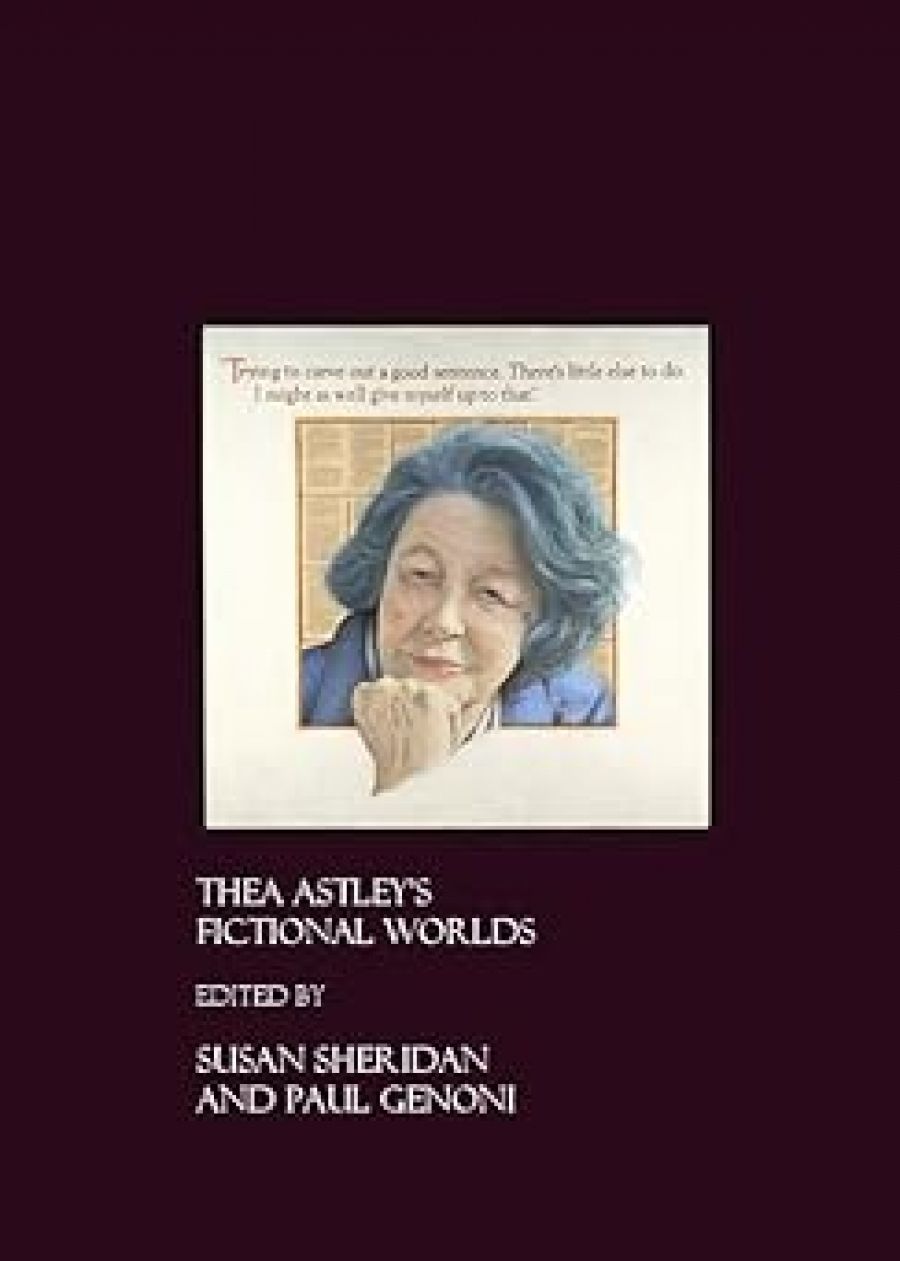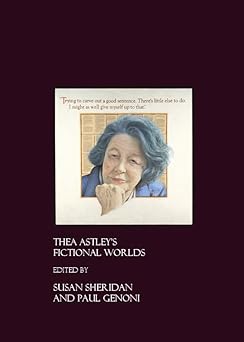
- Free Article: No
- Contents Category: Literary Studies
- Review Article: Yes
- Article Title: Subversive acolyte
- Online Only: No
- Custom Highlight Text:
This updated edition of essays on Thea Astley’s fiction will appeal to readers beyond the academy. It plays with the question as to why Astley (1925–2004) has been the subject of so little literary scholarship, despite her many literary awards (including four Miles Franklin Awards – only Tim Winton has won as many).
- Book 1 Title: Thea Astley’s Fictional Worlds
- Book 1 Biblio: Cambridge Scholars Publishing, £16.99 pb, 225 pp
- Book 1 Cover Small (400 x 600):

It took some time for critics to appreciate her lacerating humour (in this retrospective, Kerryn Goldsworthy in 1983 gets the combined grimness and hilarity most astutely), and to notice its origins in a deliberate positioning on the margins of gender and history. As Goldsworthy notes, ‘the role of the acolyte is often played out uncomfortably close to the fulcrum of Astley’s moral seesaw’, but what has to be added is that, in relation to her material, Astley plays disarmingly, as she did in life, a subversive acolyte.
Many theories are advanced for Astley’s critical neglect: the poetry that is said to impede the reader; the bending of naturalism into surrealism; her bad timing in preceding both post-colonial history and feminism; her alleged multi-vocalism and refusal to be a moralist; her avoidance of nationalism in a period which engendered nationalist myths; her identification with small-town Queensland; and her alleged negativity. The parish, as Robbie Ross notes, was her bailiwick, and far from there being a moral vacuum at the heart of her writing, she is very much the product of her Catholic education: writing is her form of activism, though moral explicitness is anathema to her (perhaps a reaction to that education).
The essays become more sure-footed as the critical moments of post-colonialism and feminism take their place in the literary critical debates. Astley’s social justice agendas, as they relate to colonialism in Australia or the Pacific, are well adumbrated in this collection by Sharrad and Dale, who are not surprised by her self-awareness as tourist or outsider. Dale’s treatment of the novel set on Palm Island involves a critical manoeuvre that was almost unthinkable in the aestheticising 1960s and 1970s – that of mining history to make sense of the literature – and it is one that pays dividends, whether we are thinking of A Kindness Cup (1974), Beachmasters (1985), It’s Raining in Mango (1987) or The Multiple Effects of Rainshadow (1996). Chloe Hooper’s book on the death of Cameron Doomadgee, The Tall Man (2008), demonstrates a principle that recurs in Astley’s opus: that history persists into the present. Astley’s passion, extremely uncomfortable for settler cultures, is to animate that history and show its continuities into the present.
Subversiveness is what gives her particular brand of satire cogency. I would contest that satire rather than the more mannered (if, in her case, savage) irony is her playground and métier, as Susan Sheridan argues. What we hear in Astley is the manic laugh of the Medusa, the voice that turns embodiment, mortality, pretentiousness and claims to transcendence into theatre and carnival.
Such abrasive laughter, so systematically applied, is quite deliberately unsettling. Astley is a woman more interested in critiquing day-to-day social systems, those that are habitual, than perhaps has been acknowledged, and within such systems the operation of power (whether clerical, racist or macho bullying, or aestheticism and its claims to power) is her focus. Her abject victims are generally rendered powerless (by mortality or by concerted social action against them), but that does not in itself invalidate the satire that exposes such abjectness. Nor does it mean that the satire lacks a moral centre. In this collection, only Sharrad describes her work as satiric.
There is a strain of elegy for beauty’s decline and corruption in Astley – whether we are talking about gardens wrested from the jungle of North Queensland, or bodies in their inevitable passage towards dust. Paul Genoni talks of it as a loss of Eden. Astley is too clear-eyed a writer to indulge in hopes for restoration of a more just order of things. Moreover, that is not the job of the satirist.
This collection invites us to reconsider ‘a throbber of a lady with midlife zest and an off-centre smile’ (a quotation from one of the several openings to Reaching Tin River, 1990).


Comments powered by CComment